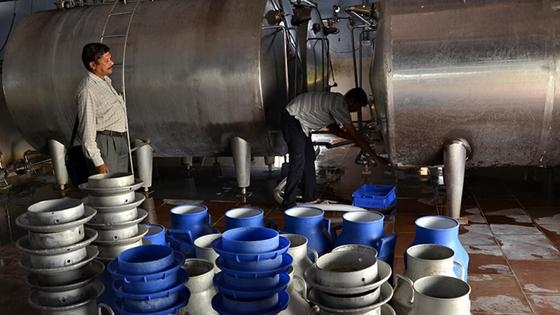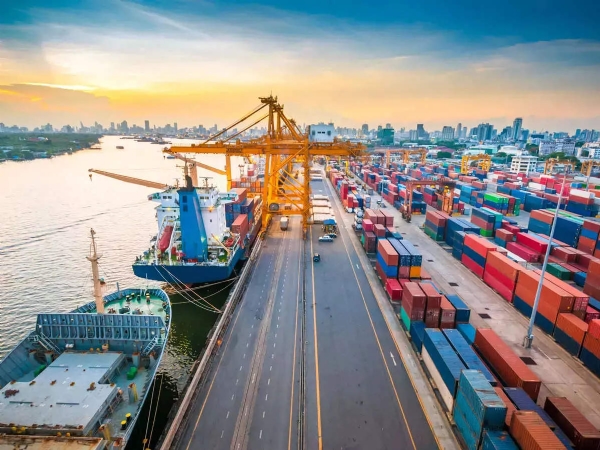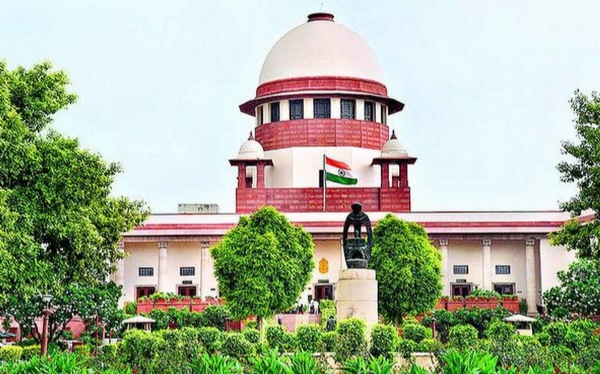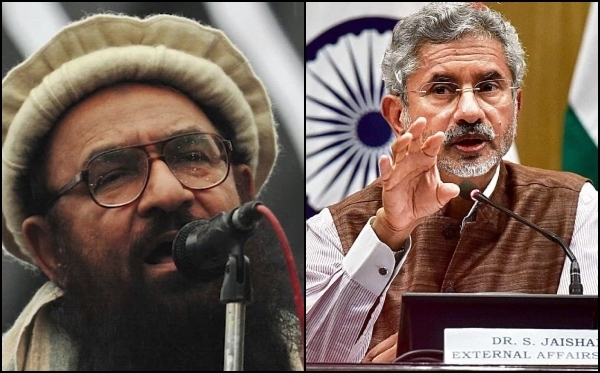#SecurityScan 27: Defence budget, digital payments, Himachal's bankruptcy and more
21 Jan 2023 18:09:26
This article is a summary of important events that have taken place in last one week affecting, India's national security.

NEWS IN BRIEF
1. Emboldened China Protesters Test Xi’s Resolve
Chinese people find new power to speak up after demonstrations. Authorities are on alert for trouble over biggest holiday of year.
Unrest boiled over in early January, when residents of a central Chinese city flipped over a police car during a heated altercation with law enforcement over the right to set off fireworks, a traditional practice to banish bad luck and usher in a new year. While people usually complain about the curbs, the response this year was unusually violent.
2. China population: new births to fall
As China’s workforce continues to shrink, labour costs will keep rising and some manufacturing industries will look to offshore.By 2050, the median age in China will be 50, while it will be 42.3 years old in the United States and 37.5 in India .
Weary parents in China say the difficulties of juggling work and childcare in a costly and ultra-competitive society with little help from the state are at the root of the country’s dwindling birth rate.
China's fertility rates were already decreasing in the 1970s, and by 1980, the Chinese government formally instituted the controversial one child policy, legally restricting families from having more than one baby. This resulted in low fertility rates and a large ageing population. In 2015, China ended the one-child policy and began allowing married couples to have two children. It expanded the allowance again in 2021, permitting up to three kids.
China's shrinking population will mean the country will see its economic growth shrink.This could stymie economic growth and pile pressure on public coffers.
3. How China sneaks out America's technology secrets
It was an innocuous-looking photograph that turned out to be the downfall of Zheng Xiaoqing, a former employee with energy conglomerate General Electric Power.He hid confidential files stolen from his employers in the binary code of a digital photograph of a sunset, then mailed to himself. It was a technique called steganography, a means of hiding a data file within the code of another data file. He utilised it on multiple occasions to take sensitive files from GE.
4. China tightens media control with stakes in two Alibaba units
Government-backed stakes primarily affect the company’s video platform and web browser business.The two subsidiaries both fall under Alibaba’s entertainment and culture arm. Along with media, finance and energy are the two other industries that Beijing is inclined to control.
5. The U.S. has expanded training provided to the military of Taiwan
The National Guard, a American mlitary force, began training the Taiwanese military before spring 2022.
6. Canada’s New Guidelines for Alcohol Say ‘No Amount’ Is Healthy
The guidance builds on growing evidence, after decades of sometimes conflicting research, that even small amounts of alcohol can have serious health consequences.
7. Ukraine War Update
A Wagner(private Russian army) fighter defects to Norway, promising to expose Russian war crimes in Ukraine.The rare defection by a former member of the notorious Russian paramilitary force could aid investigations into Moscow’s atrocities.
Spies, soldiers and the public are using open-source intelligence.
Its abundance in Ukraine is transforming how the world gathers intelligence.
8. Chat GPT
Chat GPT, the artificial intelligence system that can produce sophisticated essays on complex subjects in seconds,
It will become the “calculator for writing,” according to a leading economist.
The chat bot “will get rid of a lot of routine, rote type of work and at the same time people using it may be able to do more creative work.”
Tremendous capabilities of many disruptive technologies must be utilised fully to close technology gap between India and the developed World.
INTERNAL SECURITY
The Indian Army Will Get New Assault Rifles

A long-overdue project for the manufacturing of rifles finally started. India launched the production of AK-203 Kalashnikov Assault Rifles in Korwa Ordnance Factory, Amethi, Uttar Pradesh, on 17 January, 2023, as per the Rosoboronexport, Russia. It is a joint venture and plans to produce 100% localisation of the production of AK-203 Kalashnikov Assault Rifles in India. The first batch of 5,000 rifles is expected to be delivered by March this year.
The factory’s productive capacity can help fully equip the personnel of other security forces in India with AK-203 assault rifles, which are suitable for various users due to their high adaptability. Also, it will be able to export its products to third countries after fulfilling the demand in India.
Cyber Security, War On Drugs And Threats From Across Border On Agenda As 3-Day Conference Of Dgps, Igps Begins In Delhi
Chiefs of all state police forces and para military organisations are meeting here for three days beginning Friday with cyber security, war on drugs and threats from across the border among their top agenda.
Prime Minister Narendra Modi, Union Home Minister Amit Shah, and National Security Adviser Ajit Doval will address the annual meet that is also expected to discuss, border management and maritime security.
Around 350 top police officers of the country in the rank of the director general and inspector general will attend the conference.
Threats from Khalistani extremists, danger to the economy, crypto currencies, Maoist violence and northeast insurgency are other issues which may come up for discussion.
When the Narendra Modi government came to power, it was decided to hold the event, organised by the Ministry of Home Affairs and Intelligence Bureau, outside the national capital.
Accordingly, it was held in Guwahati in 2014, Rann of Kutch in 2015, the National Police Academy in Hyderabad in 2016, the BSF academy at Tekanpur in 2017, Pune in 2019 and virtually during the covid pandemic in 2020 and in Lucknow in hybrid mode in 2021.This time, the conference is being held at the Indian Agricultural Research Institute in Delhi's Pusa, unlike the previous venue Vigyan Bhavan.
The focus on improving policing in service of people.
FOOD SECURITY
Corruption In Food Corporation Of India
Union Minister Piyush Goyal could not have been more blunt in his speech on the foundation day of the Food Corporation of India (FCI). The raids conducted by the Central Bureau of Investigation (CBI) earlier this month, he said, were a wake-up call. The organisation has, over the decades, gained notoriety for being a den of corruption. Calling for institutionalising a mechanism to reward whistleblowers, he asked the staff to report incidents of graft and be ready to face action for any wrongdoing. The CBI’s ‘Operation Kanak’ has revealed brazen malpractices committed by an syndicate of FCI officials and millers. A well-oiled system of bribery and misappropriation of stocks has come to light. It’s an opportune time to widen the probe and prioritise a mass-scale clean-up. Cases of corruption should be taken to their logical end. Fast-track adjudication is vital.

To ‘pilfer and adulterate’ was the standard operating procedure at every step of wheat and rice procurement, stocking and distribution in Punjab. From the labourer to top officials, all got a monthly cut. The losses to the government have been estimated at hundreds of crores. A similar nexus of FCI officials, private millers and grain merchants was detected in some other states. Bribes were paid even for managing inquiries into various malpractices. The graft taint overshadows all the creditable work.
Online payment is a viable option to bring in transparency.Administrative reforms and structural changes are on the agenda. The minister has sought regular updates on the transformation of the FCI and the Central Warehousing Corporation, with directions for strict action against officers not cooperating or delaying the process. Weeding out the systemic corruption has to be central to any change.
ECONOMIC SECURITY
Restoring The Old Pension Scheme (OPS), By Himachal Pradesh Recipe For Bankruptcy
With the newly elected Congress government restoring the old pension scheme (OPS), Himachal Pradesh has become the fourth state — after Rajasthan, Chhattisgarh and Punjab — to go down this not only financially imprudent path but also one that is likely to hit insurmountable hurdles. Rs 800 crore per year for pensioners despite running a Rs 70,000-crore debt.
The Pension Fund Regulatory and Development Authority had rejected the state’s request to withdraw Rs 39,000 crore accrued under the new pension scheme since 2004. Similarly, the AAP government in Punjab is nowhere near making the promised shift happen. Notably, citing the ‘rising and unsustainable pension bill’, the Union Government, in reply to a query in the Lok Sabha in July 2019, had ruled out the reintroduction of the OPS. The firm stand also helped the Centre free up more funds for development works.
Rather than making a hollow populist promise to garner votes, political leaders should pay heed to experts, including former Planning Commission Deputy Chairman Montek Singh Ahluwalia, who has warned that moving to the OPS is ‘a recipe for financial bankruptcy.’
NPS aims to rid the government of its ballooning pension liabilities. Plus, being open to the private sector, too, it provides for a more equitable and fair distribution of funds among all retired employees, and, thereby, corrects the balance that is heavily tilted towards the minuscule proportion of staffers in the government sector. It’s time for private sector workers to collectively oppose efforts by one section to gobble up disproportionately huge chunks of government money.
Bridging deficit of $100 billion with China critical for India
The bilateral trade with China reached a record $135.98 billion in 2022, driven by surging Indian imports, which went up by 21 per cent from $97.5 billion in the previous year to $118.5 billion. However, India’s exports, fell from $28.1 billion to $17.48 billion. The trade deficit has crossed $100 billion for the first time, reaching $101.02 billion from $69.4 billion in 2021. Trade last year surpassed the record figures in 2021, which was attributed to a recovery in demand in India and increasing imports of intermediate goods as well as medical supplies. The continued, ever increasing, dependence for key goods on a hostile China is a matter of concern. India’s primary exports, such as iron ore, copper, aluminium and gems, are overshadowed by China’s exports of machinery, telecom equipment and electronics. Another reason is the lack of market access Beijing allows for more competitive Indian exports such as pharmaceuticals and IT software.

India has sought to position itself as a reliable alternative to China. As a measure of its resolve, New Delhi has concluded or is in the process of negotiating free trade agreements. The latest figures, however, show that decoupling from China is easier said than done. The global manufacturing shift, so far, has been predominantly to Vietnam.
A positive aspect of an otherwise difficult situation is that the import of more intermediate goods and raw material indicates the vibrancy of the economy. As part of attempts to reduce imports and boost exports, the government has been pushing production-linked schemes. Incentives are being offered to boost local manufacturing. The change from a marginal success to a paradigm shift will require sustained commitment.
Promoting Digital Payments
The Union Cabinet’s recent decision to earmark ₹2,600 crore for providing banks with an incentive to promote digital payments has focused attention on India’s welcome push to broaden and deepen alternatives to the most widely accepted method of payment worldwide, cash. The Reserve Bank of India’s ‘Payments Vision 2025’ document observes that ‘payment systems foster economic development and financial stability’ while supporting financial inclusion. There can be no two views that the rapid and widespread adoption of digital payment methods, coupled with steps to bring more people into the banking system’s fold, has significantly helped cut the reliance on cash for low-value transactions, especially in metros and cities.The total monthly volume of UPI-facilitated transactions aggregated almost 783 crore with the value exceeding ₹12.8 lakh crore. UPI volume last month was close to 54 times the transactions in December 2017.
Government needs to urgently ring-fence the wealth of individual spending data being generated and constantly enhance security to safeguard the payments system from cyber threats.
Over 4.7 crore cases are pending across different levels of the judiciary in India
Filed in 1951, the case pertaining to liquidation of the erstwhile Berhampore Bank is listed as the oldest to be heard in any Indian court. Over 4.7 crore cases are pending across different levels of the judiciary in India, 87 per cent of them in subordinate courts. Avoiding litigation or preferring a quick resolution seems the least of concerns. For any change to happen, this tendency must be addressed with a sense of urgency.
Three ‘A’s – adjournments, admissions, appeals – require firmness from the Supreme Court, which must set an example.
There is culture of forced delays, ineptness, inefficiency and the lack of accountability. A chronic problem of the justice delivery system is the ease of adjournments. Despite the Supreme Court advisory, costs are rarely imposed. Adjournment of cases is, sadly, a well-established norm. Exemplary precedents have to be set; the veil of acceptability has to fall.

Some remedial measures, such as setting up of Lok Adalats, have worked. Suggestions have been put forth for a massive clean-up exercise in every single court to weed out cases that are either infructuous or not worth pursuing.
A systemic revamp of methods and practices can help.
Engaging lawyers as ‘cameo judges’ to let them wield the gavel for two years, and bringing back retired judges as ‘ad hoc’ judges are among the out-of-the-box remedies proffered. Other solutions are doubling or tripling the number of judges and quickly filling existing judicial vacancies.
COUNTERING CHINESE MULTI DOMAIN WAR
Shehbaz Sharif Holds Out An Olive Branch To India
Pakistan PM Shehbaz Sharif said that wars between the two neighbours had ‘only brought more misery, poverty and unemployment to the people.’ He urged Prime Minister Narendra Modi to sit at the table and have ‘serious and sincere talks to resolve our burning issues, like Kashmir.’
India has no reason to trust Pakistan’s seemingly conciliatory approach. Facing an economic meltdown, exacerbated by food and fuel shortage and last year’s devastating floods, Pakistan is desperate to resume trade with India. However, the onus is squarely on Islamabad to create conditions conducive to the normalisation of bilateral ties with India.
Relations with Pakistan will not improve . India instead should focus on improving relationships with other economic powers to improve our economic relations and strategic relations.
China’s Climbdown On Makki A Diplomatic Win For India
The diplomatic persistence of India and the US has finally borne fruit as the United Nations has designated Abdul Rehman Makki, deputy chief of Pakistan-based terror group Lashkar-e-Taiba (LeT), as a global terrorist. In a major climbdown, China lifted its ‘technical’ hold on a joint India-US proposal to blacklist Makki. Sanctions Committee added Makki, brother-in-law of LeT chief and 26/11 attack mastermind Hafiz Saeed, to its list of designated terrorists. The listing, which will subject Makki to an asset freeze, travel ban and arms embargo, is likely to impact LeT operations.
China, found itself cornered over its ambiguous stand on terrorism. With 14 of the 15 members of the UN Security Council speaking with one voice against global terror.

India has rightly stated that it will continue to press the international community to take credible, verifiable and irreversible action against terrorism. Sanctions imposed by the UNSC are expected to curb threats from terrorist organisations active in the region. Pakistan will come under pressure to crack down on terrorism.Now China must withdraw the hold on listing of four other Pakistani terrorists.
Defence Budget Must Build Capabilities
On February 1, the Finance Minister will present the Union Budget, which will be the last full-year annual financial statement by the present government.
It is a well-known that building capacities and developing capabilities need time, while intentions can change rapidly. The bottom line for capability development is the fiscal outlay. Infusion of high-end technology in military systems and equipment, which in the present day includes cyber, space and unmanned platforms, is cost-intensive.
It is hoped that due importance will be given to the monetary cost of ensuring national security, not only in terms of enhanced outlay but also by making provisions to obviate non-utilisation of funds.
Every year we see only a marginal increase in the defence budget, which is not even adequate to overcome inflation. The Parliamentary Standing Committee on Defence had recommended that defence expenditure should be 3 per cent of the GDP to ensure adequate preparedness of the armed forces, based on threat perceptions, and developing long-term deterrence capabilities against China.
Build Fighter Strength of IAF
IAF Chief Air Chief Marshal VR Chaudhari stated on, that the “squadron strength is down to 31” and that “fighter shortage is now critical.Thus, it’s now an open secret that it will take several years for the IAF to operate to its sanctioned 42 squadron-fleet level.

The desperate callout of successive IAF chiefs needs be understood and acted upon.India must accelerate indigenisation through any means.
End of China honeymoon-Opportunity For India
China and MNCs built a mutually beneficial relationship during the past few decades. Between 1990 and 2019, China's real GDP grew at an average of almost 10% per year, contributing more than a quarter of global GDP growth. That dynamism was a magnet for MNCs, which flocked to China to capture part of the growth. Over the past 30 years, MNCs have enjoyed an increasingly open world.
That may no longer be possible. In a world reshaped by the coronavirus pandemic, rising geopolitical tensions, renewed inflationary pressures and war. China is where some of the most dramatic reconfiguration may take place.... MNCs have started reappraising their relationship with China. Though many MNCs are continuing to invest in China, some are curtailing their operations there or rebalancing their investments toward other countries, and a few are pulling out of China altogether.
This should be treated as great opportunity for India to emerge as manufacturing Centre for the whole world. We must grab the opportunity.
--